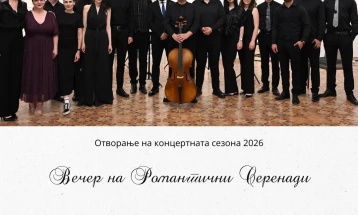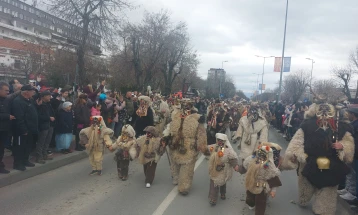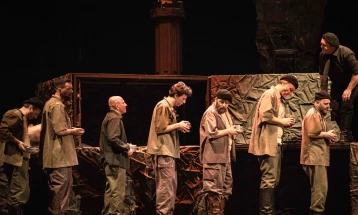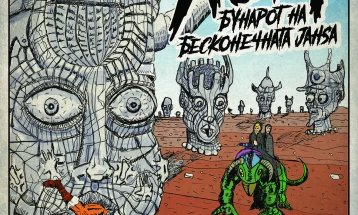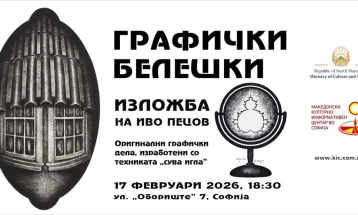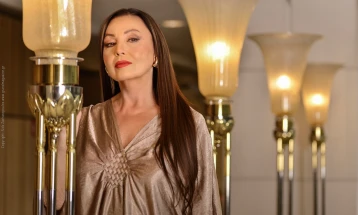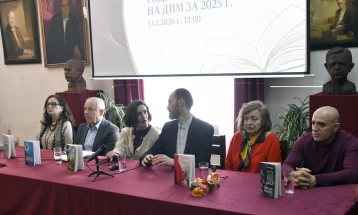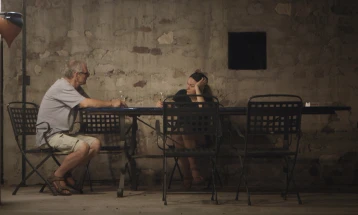Greece and North Macedonia sign deal to save rare 12th century Byzantine frescoes
- The fresco paintings found inside St George's church in North Macedonia are a rare example of Byzantine art in the Balkan region. The governments of North Macedonia and Greece - alongside the European Centre for Byzantine Monuments - have agreed to ensure the preservation of the frescoes, Euronews reports.
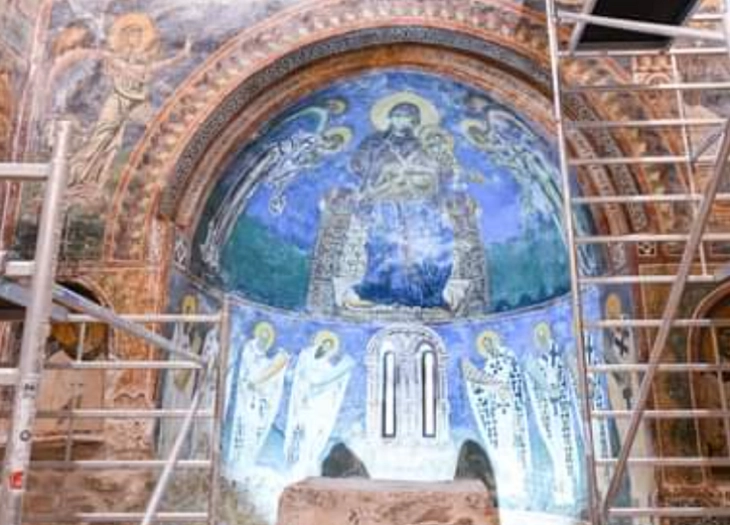
Brussels, 8 September 2023 (MIA) - The fresco paintings found inside St George's church in North Macedonia are a rare example of Byzantine art in the Balkan region. The governments of North Macedonia and Greece - alongside the European Centre for Byzantine Monuments - have agreed to ensure the preservation of the frescoes, Euronews reports.
High in the mountains above Lake Prespa that connects North Macedonia to Greece and Albania is the 12th century church of St George.
The fresco paintings found inside offer interesting and rare examples of Byzantine art in the Balkan region and make up an important part of Europe's cultural heritage.
"According to some scientists, we can see the first signs of the pre-Renaissance period which we can see in the expression of the saints [but] also in their dresses," explains Olivera Makrievska from the Institute for the Protection of Monuments-Museum Bitola.
The governments of North Macedonia and Greece - alongside the European Centre for Byzantine Monuments - have signed a pact to protect and preserve the frescoes.
And that's the challenge facing the restoration teams from both countries tasked with the tricky upkeep of these centuries-old masterpieces.
"The paint comes mainly from the minerals from stones, vegetables or even animals," said Babys Apostolidis from the European Centre for Byzantium Monuments.
"The paint came from powder, very fine powder, and they mixed this powder with lime in water [...] The painter then would apply the paint on fresh mortar before the mortar dries."
Since North Macedonia and Greece signed the Prespa agreement in 2017, bilateral relations have gained momentum.
One concrete result of this is the joint project for the preservation of rich cultural heritage in the Lake Prespa region whose waters form the border between the two countries.
Photo: European Centre for Byzantine Monuments Facebook
